First Aid Kit Essentials

A well-equipped first aid kit is a crucial component of any household, workplace, or outdoor adventure. Accidents and emergencies can happen unexpectedly, and having the right tools at your disposal can make a significant difference in providing immediate care. Whether you are at home, on the road, or in the great outdoors, a well-prepared first aid kit can be a lifesaver.
Here are some essential items to include in your first aid kit for HOME/Cottage/Car:
Bandages and Dressings:
- Adhesive bandages in various sizes to cover small cuts and wounds.
- Sterile gauze pads and adhesive tape for larger wounds.
- Triangular bandages for creating slings or securing dressings.
Basic Medication:
- Antibiotic creams and burn creams
- OTC Pain Relief, such as Acetaminophen or ibuprofen
- *These items are not allowed in the workplace FA kits
Scissors and Tweezers:
- Sharp scissors for cutting tape, gauze, or clothing.
- Tweezers for removing splinters or foreign objects from the skin.
First Aid Manual:
- A basic first aid manual or instruction booklet to guide you through common emergency procedures. Click Here for your manual,
Thermometer:
- Digital thermometer to monitor body temperature in case of illness or infection
Emergency Blanket:
- A compact, lightweight emergency blanket to provide warmth and prevent hypothermia in emergency situations.
Emergency Contact Information:
- A list of emergency contact numbers, including local emergency services, family members, and healthcare providers.
Personal Medications:
- If applicable, include a small supply of necessary personal medications.
Tourniquet:
- In the event of severe bleeding, a tourniquet can help control blood flow until professional help arrives.
Flashlight and Batteries:
- A compact flashlight with extra batteries to provide illumination in low-light situations.
Multi-tool or Swiss Army Knife:
- A versatile tool that can come in handy for various tasks, from cutting to opening containers.
Barrier Devices may not be needed in your home First Aid Kit, but are a must for travel kits.
Medical Gloves:
- Disposable latex or nitrile gloves to protect both the caregiver and the patient from the risk of infection.
CPR Mask:
- A CPR face mask to provide a barrier when performing cardiopulmonary resuscitation (CPR).
Having a well-stocked first aid kit is not just a safety measure; it’s a responsible and practical approach to handling unexpected emergencies. Regularly check and update your first aid kit to ensure that all items are in good condition and have not expired. Whether you are at home, in the car, or exploring the outdoors, a properly equipped first aid kit can empower you to respond effectively to injuries and potentially save lives.
Get your Manual: https://quickshare.samsungcloud.com/xgX1nUNdSvMJ
** It is important to note here, that the above list is for a family first aid kit. The First Aid kit in your work place, is regulated by WSIB as to contents, and will vary from above.
WSIB: All businesses covered by the Workplace Safety and Insurance Act (WSIA) must follow the first aid requirements in Regulation 1101 (PDF).
Here are some of the requirements:
- Workplaces must have at least one employee on site at all times that has a valid first aid certificate from a WSIB-approved training organization.
- Businesses must cover any costs for first aid equipment and services.
- Businesses must inspect first aid equipment at least once every three months.
- First aid stations must be easy to find and near an employee who has a valid first aid certificate.
- Businesses must post the “In case of injury poster (Form 82)“, first aid certificates and kit inspection card in an area that all employees can easily access.
- Businesses must keep a detailed record of all incidents and any first aid treatment given.
First aid requirements apply to all employees regardless of their employment status and for all workplaces, including off-site work locations.
WSIB approved First Aid Kits for the Workplace

Kathryn Davies
Author, Owner Life’s Emergency Training
